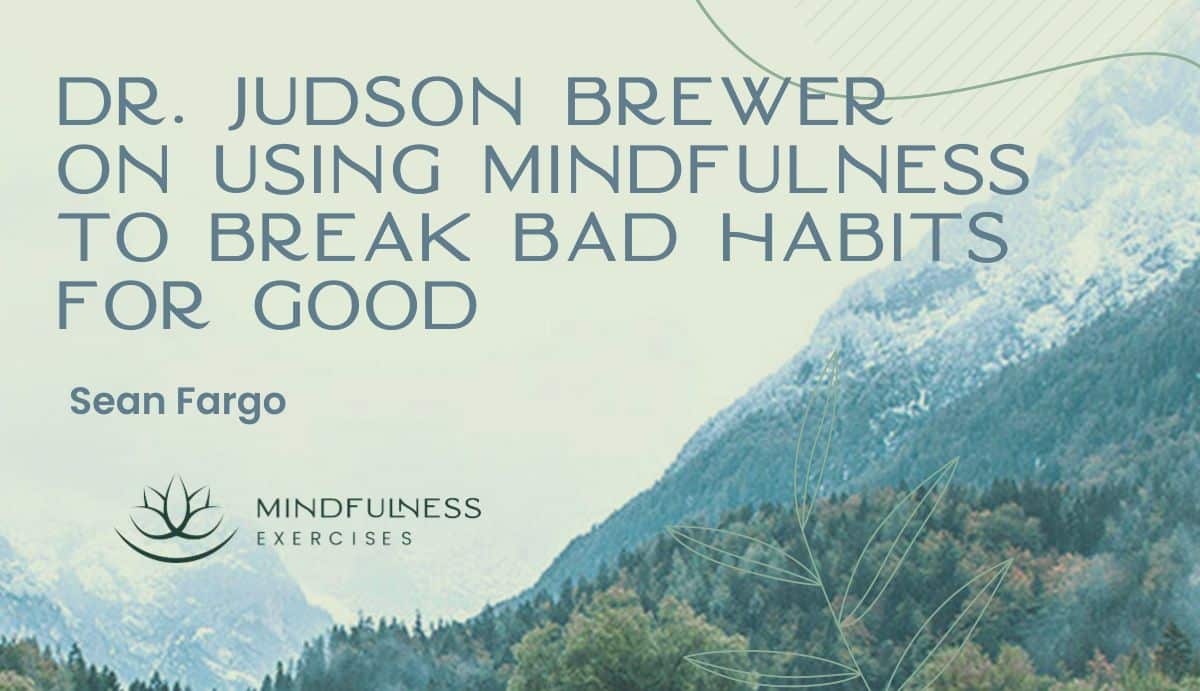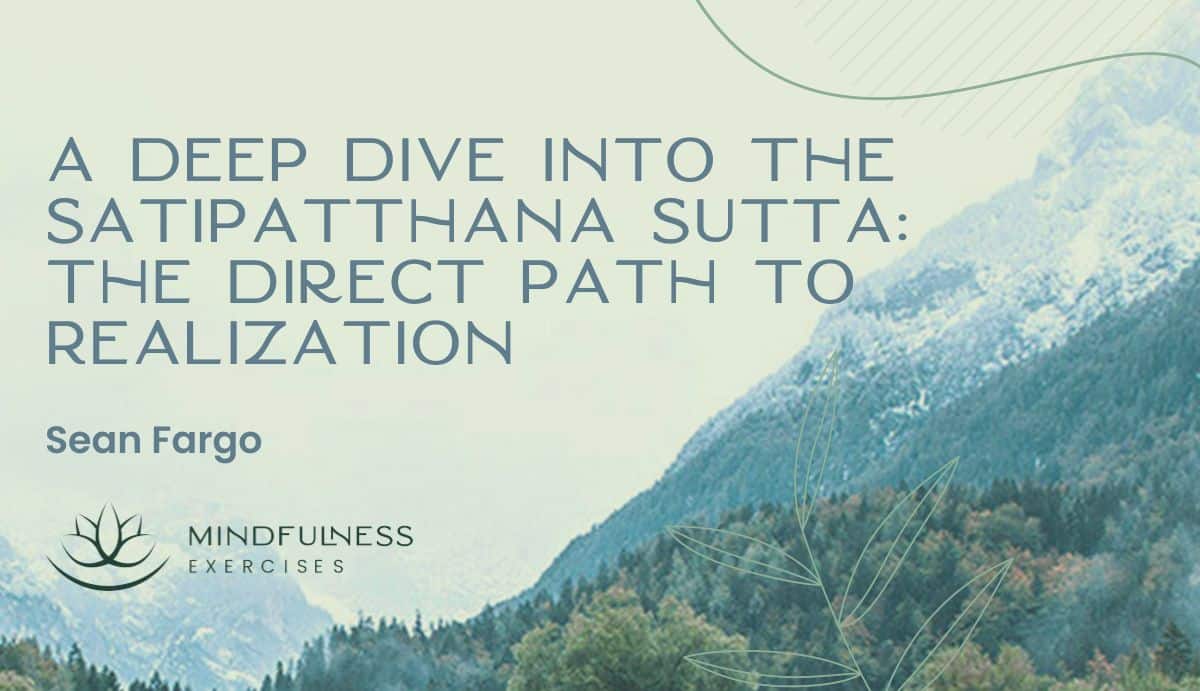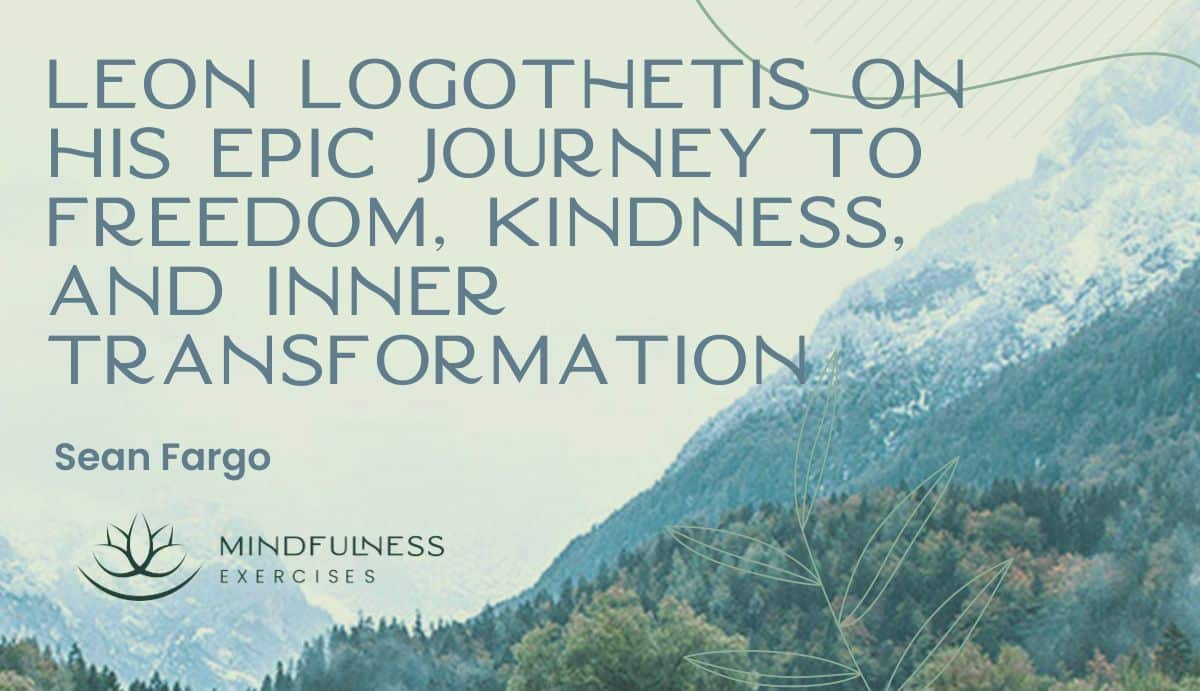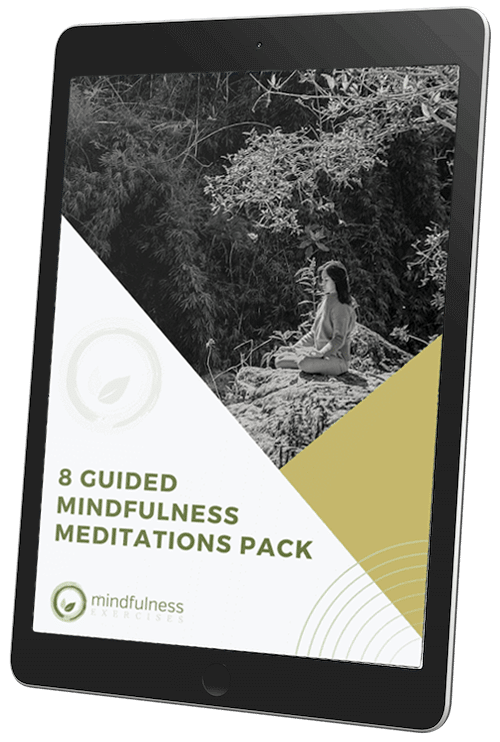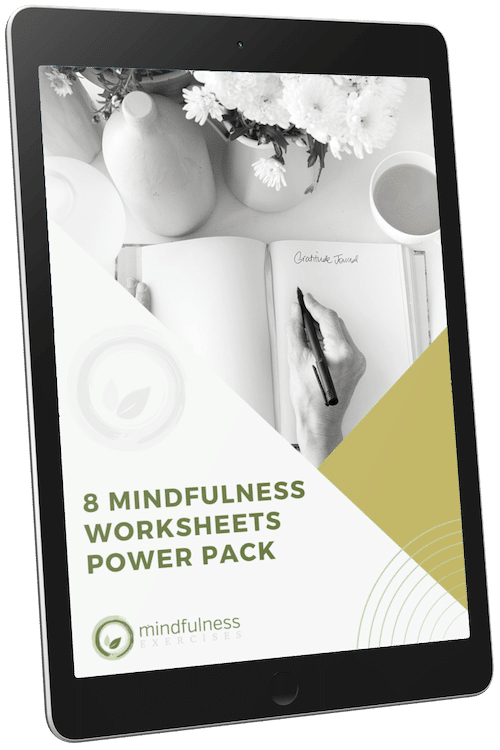Listen now
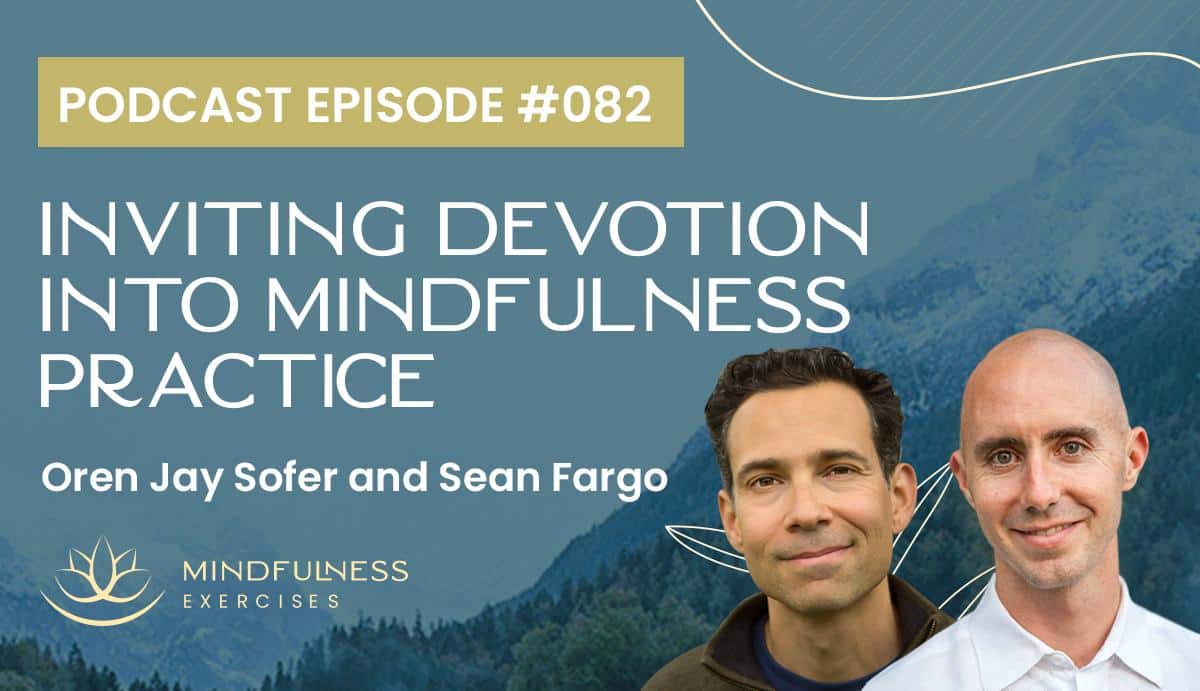
Devotion is not a quality that’s often talked about in secular mindfulness. But perhaps it should be.
Devotion can be an inspiring means of getting out of our heads, out of our own way, and connecting to our own hearts and communities. It need not be reserved for the divine. For mindfulness teachers, devotion can also help reinforce a sense of humility and reverence that makes our teaching both more impactful and fulfilling.
In this episode, Sean Fargo speaks with Oren Jay Sofer about his new book, “Your Heart Was Made for This: Contemplative Practices for Meeting a World in Crisis with Courage, Integrity and Love.” They discuss the qualities of secular devotion and why we all could benefit from inviting it into our mindfulness practice.
This podcast is brought to you by the Mindfulness Meditation Teacher Training Program. Learn more about this unique, online, self-paced certification program at mindfulnessexercises.com/certify
What You’ll Learn in This Episode:
Show Notes & Quotes:
Expanding our understanding of devotion
We typically give the word ‘devotion’ a religious meaning. But it’s possible that devotion is a primary human need, and that without it, we feel a spiritual lack inside, a misunderstood hunger. Oren shares how he originally bristled at the word devotion and the idea of bowing to something greater than himself. He has since changed course, as the meaning of devotion has expanded for him.
“I see devotion as our willingness to give ourselves to anything completely. It’s a way of relating to something with whole-heartedness, with deep loyalty, generosity, and love. When we’re devoted to something we give a lot. We give our time, we give energy, we give attention, hence the examples of being devoted to a life partner, a family, an instrument, a craft, a garden. [...] So, I like to use some synonyms to help get the sense of what’s meant by this quality on the humanistic level. I talk about devotion as sincerity, as whole-heartedness, as enthusiasm, or even reverence or respect.”
Exploring what we are devoted to in the absence of conscious choice
If we haven’t intentionally brought mindfulness to devotion, what are we devoted to? What takes priority in our lives? Where are we placing the bulk of our attention and time? Self-reflection in this area can help us shift into a way of being that carries more purpose, and as a result, greater fulfillment.
“I think it’s worthwhile to look and see, what are we devoted to in the absence of choosing something. Are we devoted to money, to productivity, to projecting a certain image, to trying to be perfect, to being judgmental? These are all kinds of things that we become devoted to when we don’t relate to this need in a conscious way. So, our need for devotion can get misplaced onto things that are not helpful, onto addiction, being addicted to work, to substances, to entertainment. Even, in this very odd way, being addicted to self-judgment, or to this narrative of not being good enough.”
The many ways we can experience devotion
When we start to recognize the importance of connecting to something greater than ourselves and giving ourselves over to this wholeheartedly, religious or not, we can become more creative with what it is that we surrender to. Oren invites us to see how the quality of wholeheartedness can show up in the simplest things, such as washing the dishes or changing a diaper.
“There are some very beautiful ways this has been expressed throughout the ages, I think of Coleman Barks’ translation of a line from Rumi, who said ‘There are a thousand ways to kneel and kiss the ground.’ Or, the famous line from Rabbi Abraham Joshua Heschel, who marched with Dr. King in 1965 for voting rights, and said ‘I felt like my legs were praying.’ So it’s a sense that when we give ourselves to something completely, it leverages what we’re doing, it creates wholeness inside and it fulfills us.”
Being devoted to helping others
As mindfulness teachers, many of us are devoted to helping others. Partnering this beautiful aspiration with a devotion to understanding can prevent us from slipping into the arrogant form of helping, the savior complex. When devoted to understanding, we want to help not because we feel separate from or better than others, but because we’re coming from a heart-based place of genuine compassion, as in ‘feeling with.’
“So, I think that together with that deep devotion to helping others and alleviating suffering, one way of expressing that and embodying that is also being devoted to wanting to understand, wanting to know. There’s that humility of learning, being able to learn what’s actually needed and how we can be of support and of service, rather than making assumptions.”
How devotion helps us sustain our practice
Throughout history, we can see how devotion plays an essential role in social transformation, particularly by making it possible for us to sustain movements across generations. Devotion to an ideal, such as freedom or equity, transforms our individual actions into part of a collective that can potentially transcend our lifetime.
“We see things like the movement for women’s suffrage, which lasted 80 or 90 years before women got the vote, or movement to abolish slavery in England, in the British Empire, here in North America, the United States. Or, we look today at the current struggles for nuclear disarmament or turning the tide of the climate emergency. And there’s that sense that when we can be wholehearted and sincere in our commitment to our vision of what’s possible, that sustains us and that can carry that vision across generations.”
Devotion as an expression of reverence and gratitude
Devotion can also be a means of reverence or gratitude and a way of giving credit where credit is due. Sean shares a story about being asked why he doesn’t often mention his Buddhist lineage or his teachers. For him, not referencing Buddhism came from a place of not wanting to alienate others. But also, we can miss an opportunity for meaningful change when we fail to acknowledge the source of things.
“That lack of devotion I think is also connected to and perpetuates a certain kind of harm in not being connected to the history and lineage and the broader sense of who we are, and focusing instead on the individual, which has so many deleterious effects on our psyche and on our capacity for meaningful change in the world when we see ourselves as individuals rather than as a member of a community, a member of a lineage, and a future ancestor.”
Devotion as relating to our experience whole-heartedly
One effect of patriarchy in our modern-day culture has been the elevation of intellect as the highest form of knowledge and the simultaneous devaluation and active suppression of traditional ways of knowing, such as intuition, emotion, and embodiment. Devotion is a powerful means of reuniting the head with the heart, for a more balanced, holistic worldview.
“In terms of the way I talk about the heart and the integration of the heart, and it’s right there in the title, ‘Your heart was made for this,’ really, coming out of, not just Buddhist tradition, but Asian thought in general where the heart and the mind are not separate, it’s really understood that these different capacities we have - rationality, intellect, analysis, and also feeling, sensitivity, intuition - that these are connected and part of a whole. One of my favorite quotes about this is from the German nun and teacher and great practitioner Ayya Khema who said about our spiritual practice, ‘You can’t do this with half a person. We need both the heart and the mind.’ And I think the same is true for anything we do in life whether it’s parenting, work, or working for change in our society.”
Additional Resources:
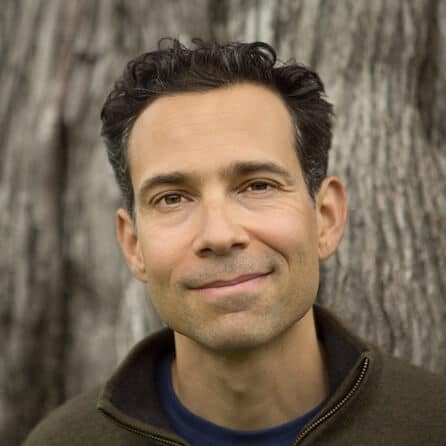
About Oren Jay Sofer
Oren Jay Sofer is a former Buddhist monk who teaches Insight meditation and mindful communication both in person and online. He is the author of Say What You Mean: A Mindful Approach to Nonviolent Communication, which is a practical guidebook for having more effective, satisfying conversations. Oren’s innovative communication training and courses integrate Marshall Rosenberg’s work on Nonviolent Communication (NVC) with mindfulness practice.
Oren has a degree in Comparative Religion from Columbia University and is a long-time student of Joseph Goldstein, Michele McDonald, and Ajahn Sucitto. He is a graduate of the Spirit Rock Vipassana Teacher Training and a current member of the Spirit Rock Teachers Council.

